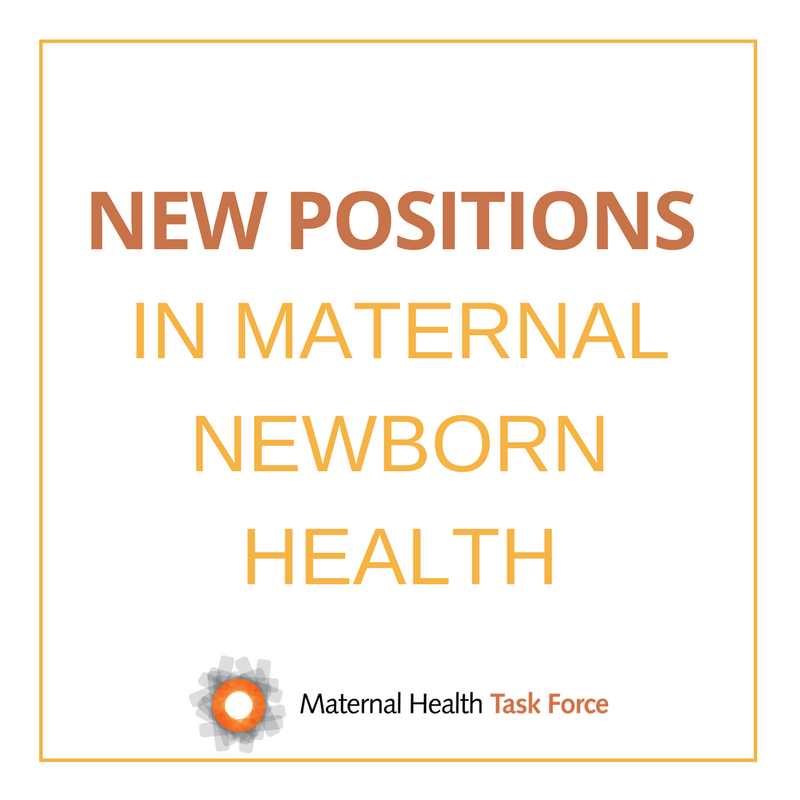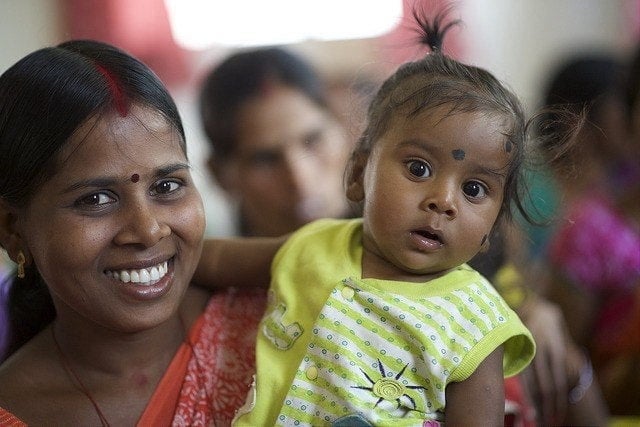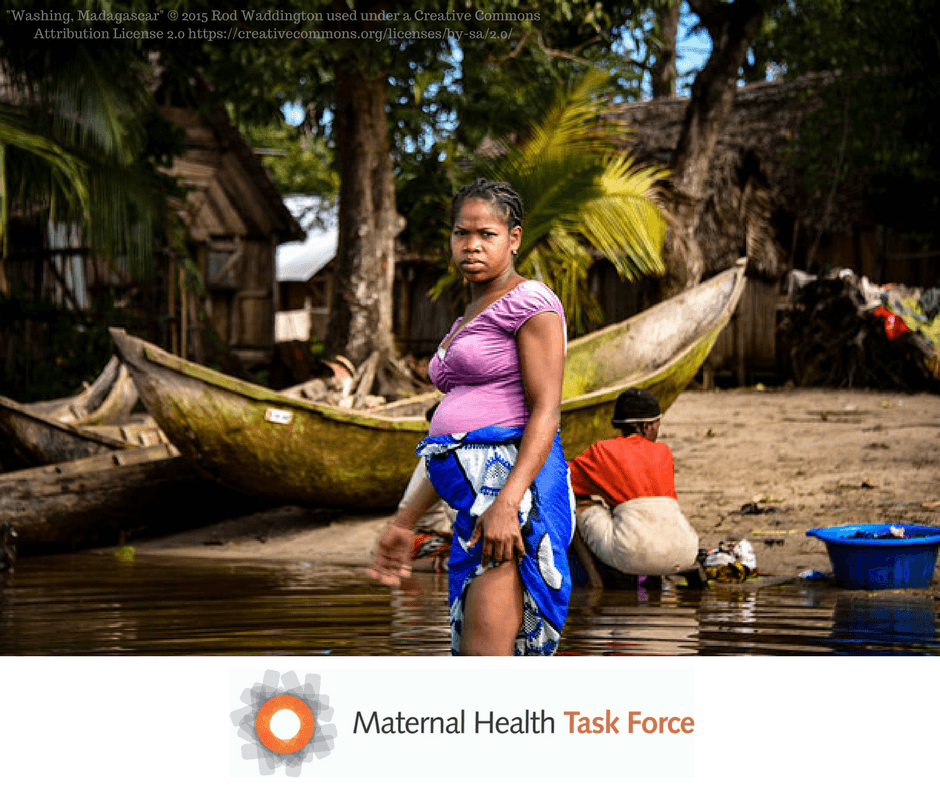Maternal Health Task Force
The Maternal Health Task Force strives to create a strong, well-informed and collaborative community of individuals focused on ending preventable maternal mortality and morbidity worldwide.
677 Huntington Avenue
Boston, MA 02115
Blog
-
Calling All Technical Experts in Maternal Health Measurement: Share Your Input by 30 April
The Department of Reproductive Health and Research at the World Health Organization seeks expert insight into two key areas: defining maternal death and clarifying skilled attendant at birth. Please read and share the full call for comments for more details. Submit comments to maternalestimates@who.int by 30 April 2017…read more

-
New Positions in Maternal Newborn Health
Interested in a position in reproductive, maternal, newborn, child or adolescent health? Every month, the Maternal Health Task Force rounds up job and internship postings from around the globe. This month, we are featuring positions at Jhpiego, White Ribbon Alliance, CARE and more! …read more

-
Quality, Equity and Dignity: A Solution for Every Woman, Every Newborn, Everywhere
The government of Malawi recently hosted national and global health leaders in its capital, Lilongwe, to launch the Network for Improving the Quality of Care for Maternal, Newborn and Child Health (the Network). The vision is an ambitious one — to halve the number of maternal and newborn deaths and stillbirths in participating health facilities within five years in nine initial countries. The Network aims to build on and accelerate progress while focusing on quality, equity and dignity…read more

-
Why Don’t Adolescent Mothers Use Maternal Health Services?
Adolescent girls, particularly those living in low-resource settings, are uniquely vulnerable during pregnancy and childbirth – but many do not receive high quality antenatal, intrapartum and postpartum care. A recent systematic review examined the factors influencing adolescent mothers’ utilization of maternal health services in low- and middle-income countries…read more

-
Task Shifting: The Key to Increasing Access to Essential Maternal Health Services
USAID reports that there are 18 million fewer health professionals in the world than what is needed, and the largest shortages are in parts of Asia and in sub-Saharan Africa. This implies that large numbers of women do not have access to skilled health care. Task shifting can be a key strategy to minimize this gap and prevent maternal deaths due to pre-eclampsia/eclampsia…read more
-
From the Archives | Effective Antenatal Interventions to Prevent Maternal and Newborn Mortality
Antenatal care (ANC) coverage has expanded over the last fifteen years: The proportion of women in developing countries receiving at least one ANC visit increased from 64% in 1990 to 83% in 2014. While this increase in utilization is a step in the right direction, content and quality of ANC are equally important factors…read more
-
Strengthening Health System Governance for Improved Quality of Maternal Health Care in Nigeria
Using an adapted version of the World Health Organization governance actions, the Partnership for Transforming the Health System II Project illustrates the role of governance in improving the quality of maternal care by increasing access to skilled birth attendants who can provide active management of the third stage of labor in Nigeria…read more

-
How Social Factors Drive up Suicide Rates Among Pregnant Women
Pregnant women in South Africa who live in poor communities are more likely to consider or attempt suicide than the general population, but many of them do not have diagnosed depressive or anxiety disorders. Their suicide risk is associated with lower socioeconomic status, food insecurity, intimate partner violence and a lack of social support…read more
-
Are We Measuring Correctly? A Way Forward for Improving Maternal and Newborn Health Surveillance in Pakistan
Pakistan is among the ten countries that comprised 58% of the global maternal deaths reported in 2013. Many births and deaths are not registered, and information on the cause of death is often unknown. As a result, maternal mortality estimates for Pakistan are likely underestimated…read more
-
Wilson Center Event: Midwives’ Voices, Midwives’ Realities
We are excited to announce the upcoming policy dialogue, “Midwives’ Voices, Midwives’ Realities: The Largest Global Survey of Midwives and What It Means for Maternal and Newborn Health.” The event will take place at the Wilson Center in Washington, D.C. (and online!) on Monday, 27 February 2017 from 9:30-11:30am…read more